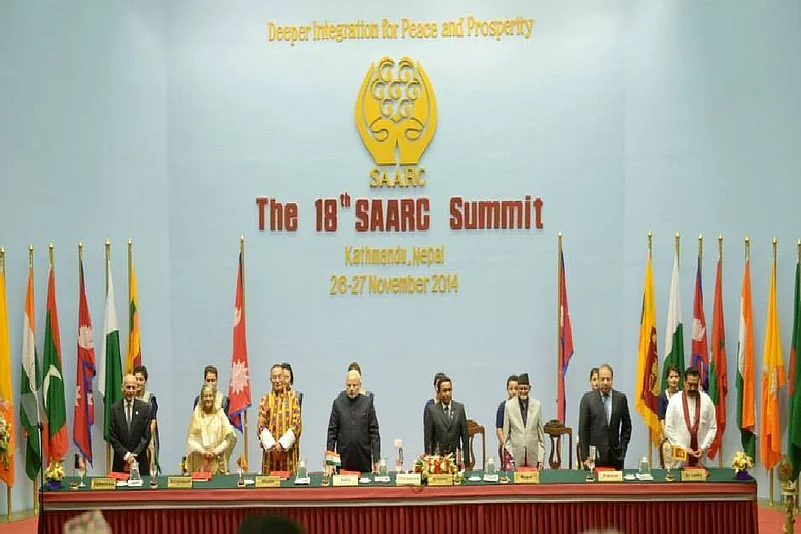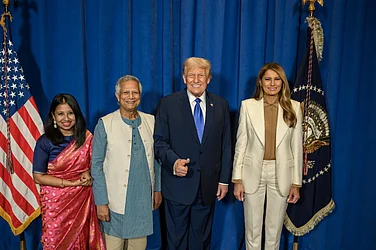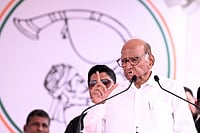Secretary General of the South Asian Association for Regional Cooperation (SAARC) Mohammad Golam Sarwar held talks with senior Indian officials and discussed issues of cooperation under the grouping.
Sarwar, a Bangladeshi diplomat, paid a five-day visit to India from May 11.
It was his first official visit to any of the member states of SAARC after assuming charge as the grouping's secretary general in July 2023.
Sarwar held wide-ranging talks with Secretary (East) in the Ministry of External Affairs (MEA) Jaideep Majumdar besides meeting Foreign Secretary Vinay Kwatra and Minister of State for External Affairs Rajkumar Ranjan Singh.
Sarwar interacted with the authorities of the government of India on issues of cooperation in SAARC, the MEA said.
"During the discussions, India reiterated its commitment towards regional cooperation for growth and prosperity of the people of South Asia through SAARC," it said.
"It was also underlined that India considers SAARC as an important regional association for cooperation in South Asia and has been taking several efforts and initiatives to bring the peoples of South Asia closer to each other," it said.
The SAARC secretary general also visited the South Asian University (SAU). The SAARC is a regional bloc comprising India, Afghanistan, Bangladesh, Bhutan, the Maldives, Nepal, Pakistan and Sri Lanka.
The grouping has not been very effective since 2016 as its biennial summits have not taken place since the last one in Kathmandu in 2014.
The 2016 SAARC Summit was to be held in Islamabad. But after the terrorist attack on an Indian Army camp in Uri in Jammu and Kashmir on September 18 that year, India expressed its inability to participate in the summit due to "prevailing circumstances".
The summit was called off after Bangladesh, Bhutan and Afghanistan also declined to participate in the Islamabad meet.


























